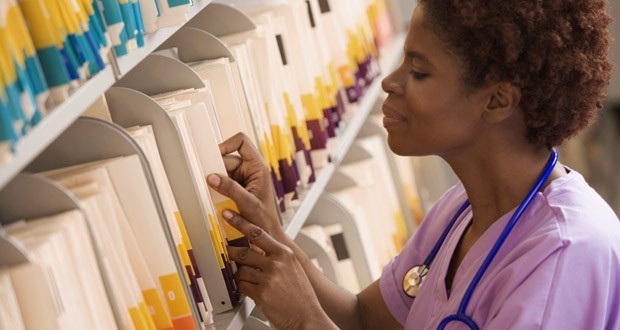Scott Trueman discusses the crucial importance of nursing documentation in legal proceedings.
Nursing documentation or “nursing notes” have several functions not least of which are to record faithfully and actually what occurred at the relevant time.
Such documentation is highly valued by lawyers because nurses deliver the bulk of the care to patients and it is core business for nurses to monitor, observe, report and record.
Nurses are therefore vital to the process of litigation – in particular their documentation is a vital aspect to lawyers prosecuting cases.
Invariably when a case has navigated through the tortuous pre-trial process and is ready for hearing there are at least two important issues for the court to grapple with; firstly, the passage of time results in nurses usually not having any recollection of events or their memories have faded to the extent of being unreliable.
Secondly, the adversarial nature of litigation means that whomever the plaintiff (client) and defendants (doctors/hospital/nurses) are, there is a contest between the parties to persuade the court as to what actually occurred (ex post facto). This involves gathering a body of credible and reliable evidence to persuade the court it should be accepted because it is reflective of the “truth” and hence, can form the basis of the judgment.
This “contest” between the parties means each attempts to persuade the court that their version of the events is reliable and correct.
Through a pretrial procedure known as “discovery” certain evidence is made available to the opposing solicitors. A much legally anticipated suite of documents in this process concerns the classically referred to assemblage of “nursing notes”.
Reasons justifying the discovery process are to prevent parties being ambushed at trial by unknown facts and also to facilitate and encourage pretrial settlement negotiations.
Often a client may wish to sue for a medical outcome but does not have knowledge as to what exactly occurred. If the doctors’ records, hospital records and nursing notes (along with other records such as test results, witness statements and examination results) are made available then the client can make a more informed decision about whether to issue proceedings or not.
A number of inherent characteristics concerning nursing notes makes them valuable evidence in the litigious process; objectivity, contemporaneousness, professionalism, fulsomeness and detail.
The case of Spasovic v Sydney Adventist Hospital (2003) NSWSC 791, is illustrative of this point.
The brief factual background concerned the client falling off a ladder and requiring surgery to his feet.
Post-operatively he complained and was medically examined for a headache. Subsequently the client was discharged but returned for an emergency craniotomy to address a cranial haemorrhage. The client sued for negligence over the fact that the haemorrhage was not diagnosed and treated whilst in hospital – he was not successful in his claim. The client`s complaint to the nursing staff of a headache was recorded in detailed notes along with the referral for a medical examination.
Of the nine nurses who gave evidence the vast and overwhelming majority (understandably) had no memory or recollection of caring for the client. The events occurred in 1996 and the matter went to trial seven years later.
The nursing notes facilitated the ability of refreshing the nurses’ memories or where no memory was revived, were accepted as reflective of what in fact occurred at the time.
As the judge stated: “It was submitted... that I should accept... the Hospital notes as reliable evidence and indeed the most reliable evidence... [as they]... have the virtues, as evidence, of being contemporaneous records; of having been made by or under the supervision of trained observers; of having been made, not for the purposes of litigation or out of self-interest or with hindsight, but for the purpose of disinterestedly recording, progressively, what was happening during the plaintiff’s stay in the Hospital; and of being, on the face of them, quite detailed and not merely perfunctory.
The virtue of having been made without hindsight, that is of having been made without knowledge of the plaintiff’s [claim] and its consequences, is a virtue possessed by the entries in the Hospital notes. I have also had the benefit of seeing and hearing many of the nurses who made notes give evidence and I formed a generally favourable impression of them”.
Nurses need to understand and keep in mind that nursing notes are an essential task and a duty of no less relevance than caring for the client themselves. Time and again, as evinced by the multitude of reported medico-legal cases, nurses are crucial witnesses and no less is their handwritten record.
Scott Trueman is a mental health nurse and a former lawyer.
Do you have an idea for a story?Email [email protected]
 Aged Care Insite Australia's number one aged care news source
Aged Care Insite Australia's number one aged care news source

